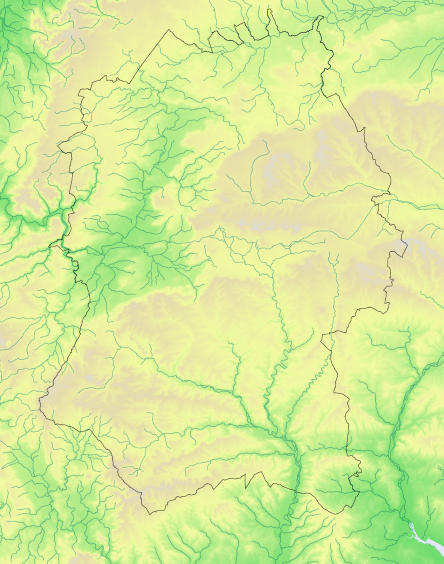Red Kite Milvus milvus
Summer abundance change
Increasing resident and wanderer from Wales and re-established populations in England
Atlas species lists
- Breeding distribution 1995–2000
- Summer abundance 1995–2000
- Winter distribution 1995–2000
- Winter abundance 1995–2000
- Breeding distribution 2007–2012
- Summer abundance 2007–2012
- Winter distribution 2007–2012
- Winter abundance 2007–2012
- Breeding distribution change
- Summer abundance change
- Winter distribution change
- Winter abundance change
More Red Kite maps
- Breeding distribution 1995–2000
- Summer abundance 1995–2000
- Winter distribution 1995–2000
- Winter abundance 1995–2000
- Breeding distribution 2007–2012
- Summer abundance 2007–2012
- Winter distribution 2007–2012
- Winter abundance 2007–2012
- Breeding distribution change
- Summer abundance change
- Winter distribution change
- Winter abundance change
More maps for this atlas
Map explanation
This map shows where changes occurred in the relative abundance of the species in Wiltshire between 1995-2000 and 2007-2012, as revealed by the fieldwork for Birds of Wiltshire (Wiltshire Ornithological Society 2007) and the shared fieldwork for Bird Atlas 2007-2011 (BTO 2013) and for Wiltshire Tetrad Atlas 2007-2012.
Key
Data not mapped to preserve confidentiality
Red Kites are endemic to western and central Europe, apart from a small population in northwest Africa. Their breeding range extends from Great Britain to western Belarus and Ukraine, and from southern Sweden to Italy, the western Mediterranean islands and north Morocco. Those in the west and south are sedentary, while those to the north and east of eastern France migrate in winter to the Mediterranean and North Africa. Historically they were common throughout Britain but in the 19th century they were persecuted to near extinction, leaving only a remnant population in mid Wales. The last 19th century breeding record of Red Kites in England was in 1863.
In Wiltshire they probably ceased to nest by about 1840, though there were occasional records of birds flying over right up to the end of the century. The first 20th century record came in 1932 followed by ten more between 1951 and 1980, all singletons, three of which, between October 1969 and June 1970, were suspected of being the same bird. From 1985 onwards they began to appear annually, initially straying from an expanding population in Wales (though five in spring 1988 were thought to be part of a national influx probably of Continental origin), then from a growing population in The Chilterns which was part of an ambitious national re-introduction programme in England and Scotland launched in 1989. Casual records produced for Birds of Wiltshire during 1995-2000 showed Red Kites present in 25 of the 10km squares that are wholly or partly in the county. The first confirmed breeding record in the county for around 140 years came in 2000. Up to ten pairs were seen each year between 2001 and 2008 though the highest number of nests found in any one year was five.Thereafter numbers continued to increase: between 2009 and 2018 the lowest number of pairs confirmed or probably breeding in any one year was eleven while the highest was 21 in 2017.
References
The following references are used throughout these species accounts, in the abbreviated form given in quotation marks:
“1968-72 Breeding Atlas” – Sharrack, J.T.R. 1976: The Atlas of Breeding Birds in Britain and Ireland. T. & A. Poyser
“1981-84 Winter Atlas” – Lack, P.C. 1986: The Atlas of Wintering Birds in Britain and Ireland. T. & A. Poyser
“1988-91 Breeding Atlas” – Gibbons, D.W., Reid, J.B. & Chapman, R.A. 1993: The New Atlas of Breeding Birds in Britain and Ireland 1988-91. T. & A. Poyser
“Birds of Wiltshire” – Ferguson-Lees, I.J. et al. 2007 : Birds of Wiltshire, published by the tetrad atlas group of the Wiltshire Ornithological Society after mapping fieldwork 1995-2000. Wiltshire Ornithological Society.
“Bird Atlas 2007-2011” – Balmer, D.E., Gillings, S., Caffrey, B.J., Swann, R.L., Downie, I.S. and Fuller, R.J. 2013: Bird Atlas 2007-2011: the Breeding and Wintering Birds of Britain and Ireland
“WTA2” – ("Wiltshire Tetrad Atlas 2 ") the present electronic publication, bringing together the Wiltshire data from “Birds of Wiltshire” and “Bird Atlas 2007-11”, together with data from further fieldwork carried out in 2011 and 2012.
"Hobby" - the annual bird report of the Wiltshire Ornithological Society.

